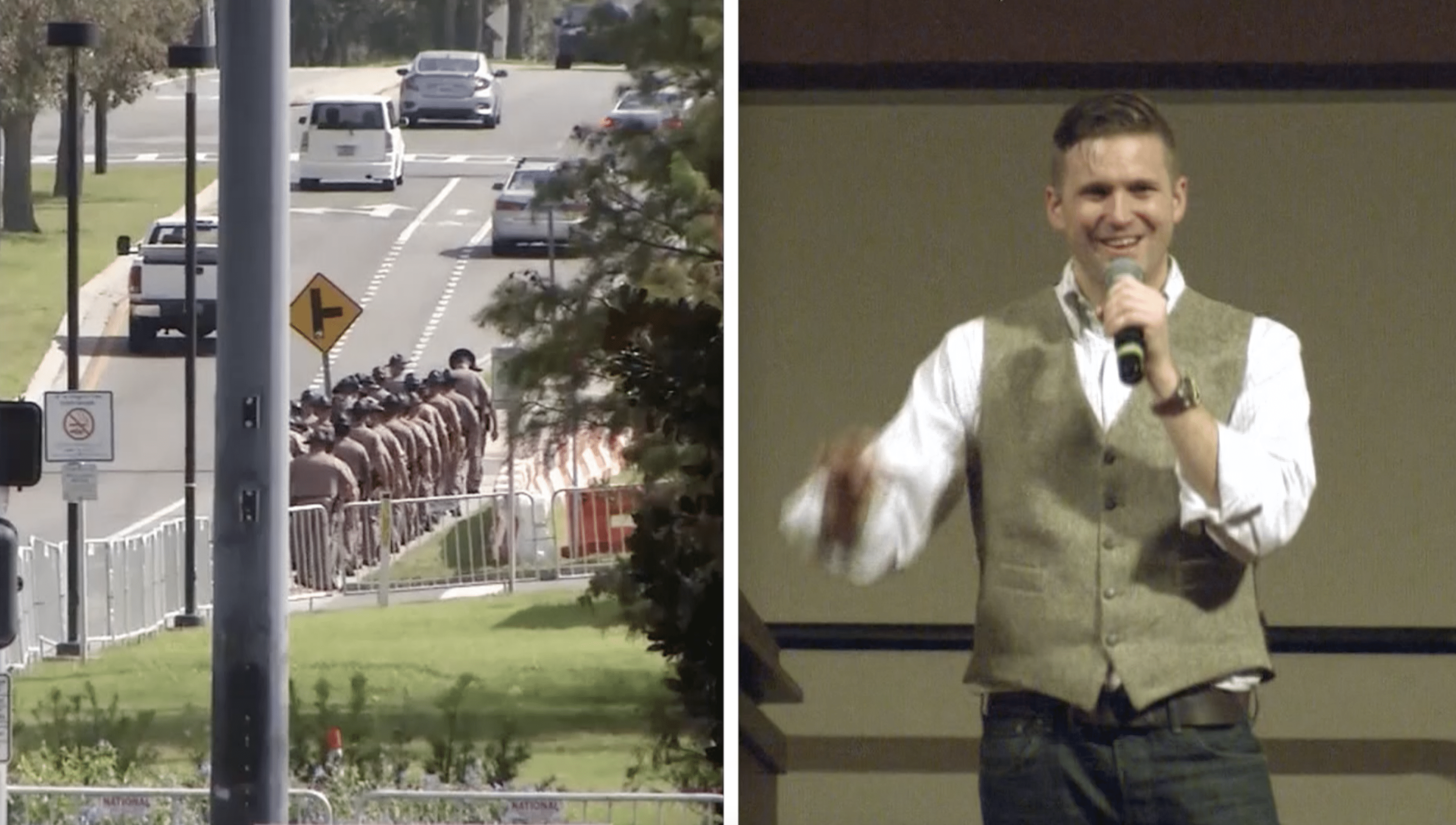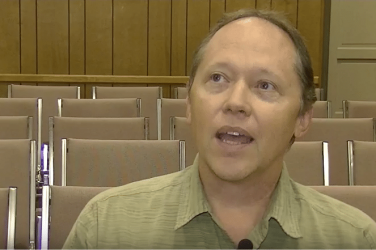Richard Spencer’s white supremacy speeches are causing issues across college campuses in the S-E-C. His most recent stop was at the University of Florida earlier today, where he was met by hundreds of protestors. The University of Florida President, Kent Fuchs, told CNN that the money spent on the event security today is equal to one thousand students’ tuitions.
The University of Florida says it could not legally decline Richard Spencer’s request to rent space for his speech advocating for a “white awakening.” The public university cannot stop an event based on the content of the views, but the university President said he condemns Spencer’s views and that the university of Florida values diversity.
The University of Georgia has a similar policy regarding free speech on campus. Three areas on campus are designated as “free speech zones.” UGA’s Freedom of expression policy requires non-University affiliated speakers to submit a reservation request to speak in one of these zones or to hold a meeting in a university building. The request form includes a portion where the speaker must provide a description of their activity.
Reporter Annie Jorgensen asked the Division of marketing and communications how UGA would handle an extremist speaker coming to campus, but the Executive Director says they cannot speculate on hypothetical situations.
UGA policy outlines several reasons why a reservation request can be denied. These reasons include significantly disrupting University activities, obstructing entrances to buildings and traffic, and representing a threat to public safety at the discretion of the University Police. But, content of the views presented is not a valid reason to decline a request.








